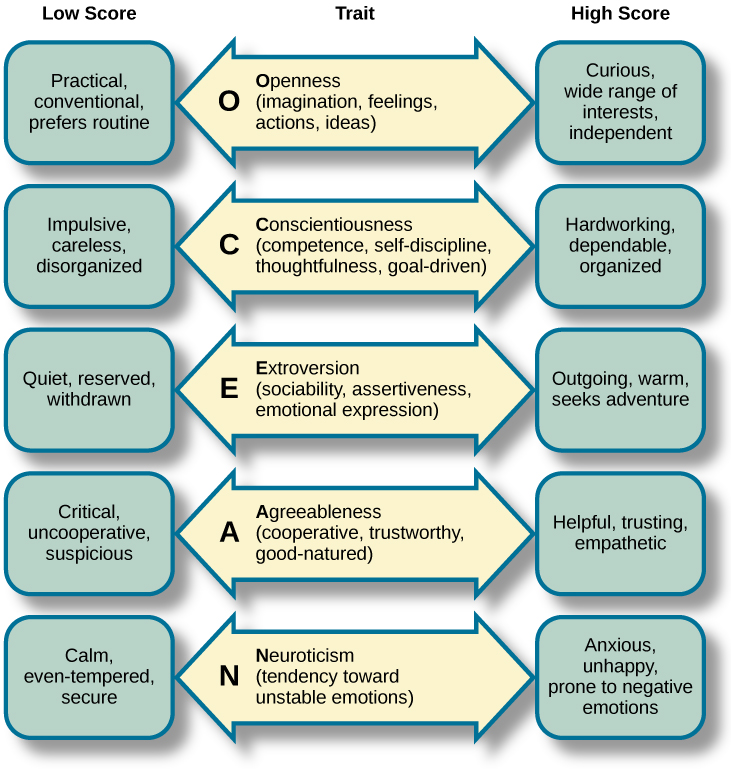Trait Theories Are Best Described as Focused on Explaining
Trait Theories Following the extensive studies of great leaders throughout history under the original leadership approach the trait theory was the next evolution of study. He came about with an astounding discovery in 1936 which showed that more than 4000 words in an English language dictionary described personality traits.

Trait Theorists Introduction To Psychology
The leader-member exchange theory.

. Basically a leader is born with. Traitists Approach or Theory. Trait Theory of Leadership.
According to this theory leadership behaviour is influenced by certain qualities of a person leader. Trait theorists believe personality can be understood via the approach that all people have certain traits or characteristic ways of behaving. What is Trait theory.
Leadership Theories Traitists Behavioural Situationalist Followers and System Theory. Trait theorists attempt to explain our personality by identifying our stable characteristics and ways of behaving. Gordon Allports Trait Theory.
Demographics such as age education and familial background. They have identified important dimensions of personality. The trait theory emphasizes that leaders have inborn traits.
Start studying Trait Theory of Leadership. The leader is the servant of those he or she leads. The trait model of leadership is based on the characteristics of many leaders - both successful and unsuccessful - and is used to predict leadership effectiveness.
In this set of theories youths are influenced to commit delinquent offenses by. Trait theory is a significant departure from the earlier qualitativemeasures that are typical of Freudian and neo-Freudian theory. This theory says that effective leadership occurs when there is a fair exchange between the leader and those being lead.
Trait theory in psychology rests on the idea that people differ from one another based on the strength and intensity of basic trait dimensions. There are three criteria that characterize personality traits. The theory is a way of explaining how personality traits develop and change.
The leader is focused on serving rather than being served. The resulting lists of traits are then compared to those of potential leaders to assess their likelihood of success or failure. The trait theory of personality provides the framework for studying human personality.
Another set of theories can be described as trait theories. In simple words leadership behaviour is sum total of traits. The foundation of this theory is the characteristics of different leaders both successful and unsuccessful ones.
Scholars researching the trait theory try to identify leadership characteristics from different perspectives. These are born leaders who cannot help but take control and guide situations. And intelligence which encompasses decisiveness judgment and knowledge.
The five factors are openness conscientiousness extroversion agreeableness and neuroticism. Means to focus on measuring identifying and describing individual differences in personality in terms of traits. This would make it possible to predict what a persons overall personality could be if you could determine what the individual characteristics or traits happened to be.
Personality traits reflect peoples characteristic patterns of thoughts feelings and behaviors. Trait theory approach focuses on personality differences between individuals. Do you tend to be sociable or shy.
It is primarily quantitative or empirical focusing on the measurement of personality in terms of specific psychological characteristics called traits. In contrast to modern trait theories those rooted in psychoanalytic. Psychologist Gordon Allport was among the firsts to come up with a personality trait theory.
Trait theory is also known as the virtue theory of leadership. In essence the trait approach is concerned with what traits exhibit and who has those traits. The trait approach focuses exclusively on the leader not on the followers or the situation.
Broad behavioral elements that define the personality of a person are known as traits. The Big Five personality traits can reflect how a person thinks feels and behaves and is one of the most widely used frameworks in personality research. They focus on the physiological attributes such as appearance weight and height.
This makes the trait approach theoretically more straightforward than other approaches such as situational leadership or leader-member exchange LMX theory. Both sides benefit from the exchange that takes place. Possibly predict behavior emphasize similarities among people in terms of personality.
Learn vocabulary terms and more with flashcards games and other study tools. 1 consistency 2 stability and 3 individual. Hundreds of trait studies were conducted in the 1930s and 1940s to seek the essential qualities needed for leadership success.
The trait theory of personality suggests that people develop their personality from a series of specific traits instead of having a base personality that is present. Goals of trait theories. Early trait theorists tried to describe all human personality traits.
The Five Factor Model is the most widely accepted trait theory today.

Personality Psychology Theories Of Personality Mr Lauta Psychology Shenandoah Valley Ppt Download

No comments for "Trait Theories Are Best Described as Focused on Explaining"
Post a Comment